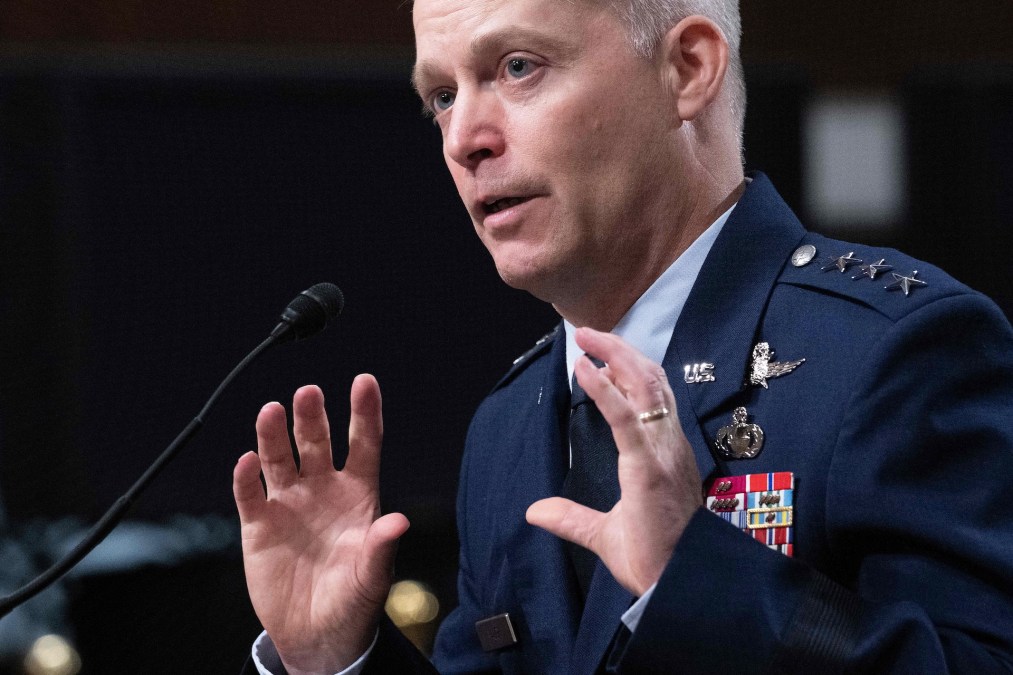Cyber Command leader says budget powers are shaving time to complete tasks that once took years

Special budget powers that Congress gave Cyber Command have allowed it to swiftly accomplish tasks that would’ve once taken years, its commander Gen. Timothy Haugh said Thursday.
The authority over its own budget means Cyber Command is able to respond quickly to changing conditions in the cyber landscape, Haugh said.
“Now with budget authority, we really have the opportunity to drive priorities and what that allows for in the past, the way major advancements would work in cyberspace, if we wanted to make a foundational change in the department, Cyber Command would then be negotiating with each of the four services,” he said at the Billington Cybersecurity Summit. “With budget authority, we get to make that decision and then go right into implementation with our service partner.”
As an example of how that has worked in practice, Haugh said Cyber Command was able to put an extra $140 million into training.
“We were able to advance more quickly the idea that we started with our training infrastructure being focused on collective training for our teams,” he said. “We then were able to rapidly extend that into, ‘How do we use those tools for certifying individuals in the work role that they are performing?’”
“And then we extended it multiple years earlier than originally intended, into the service schoolhouses, so they now have access to our training infrastructure, our scenarios, and we can update those scenarios based off what we’re seeing … in our real operations, in ways that would have taken multiple years if we were doing that through each service process,” Haugh said.
Congress first granted Cyber Command budget authority in the fiscal year 2022 annual defense policy bill, then cemented them in fiscal 2024 defense spending legislation.
The enhanced authorities to carry out acquisition of technology has also been a big help, Haugh said.
Another kind of Cyber Command power Haugh touted was its “Hunt Forward” authority, where the command deploys personnel overseas to strengthen the digital protections of allied nations. Not only do those operations aid allies, but given the common threats in cyberspace with the United States — China, Russia, Iran, North Korea and ransomware — those missions can also help back home, Haugh said.
“From our perspective, we’re meeting the objectives of helping them secure their networks,” he said. But it gives Cyber Command insight into how U.S. adversaries are targeting its allies, too, he said, and share with industry “to communicate to those adversaries that we’re tracking their activities and we’ll contest them wherever we can to be able to ensure both the defense of our networks but defensive partner networks.”



